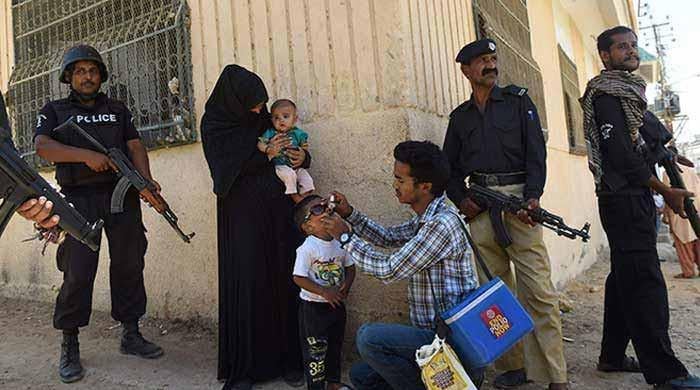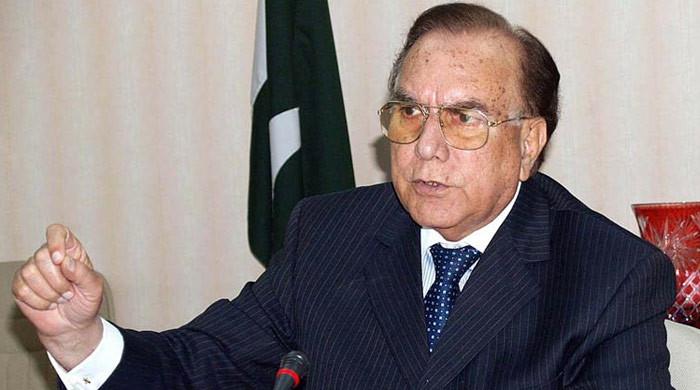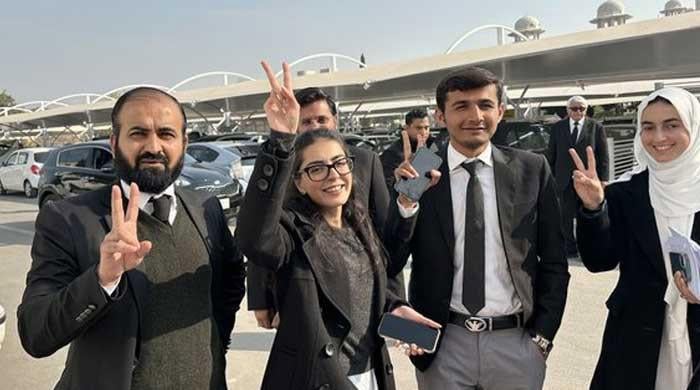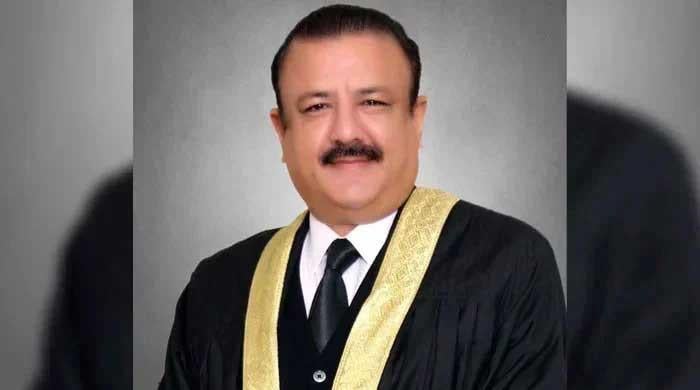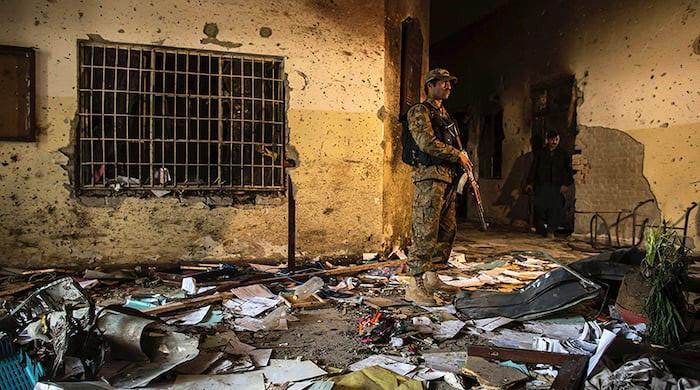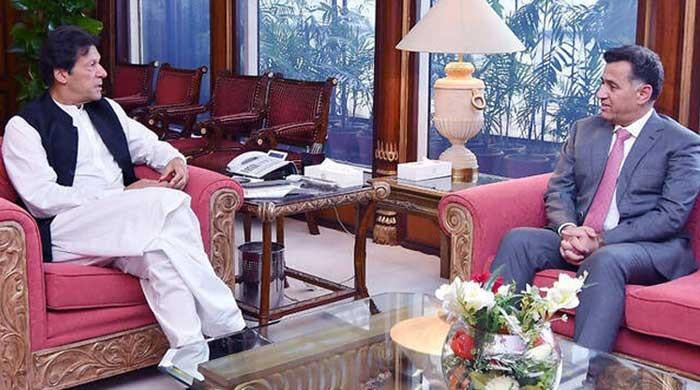India against peace deal in Afghanistan, says NATO report
NATO report says Pakistan doesn’t want the Taliban to take over in Afghanistan
June 18, 2021
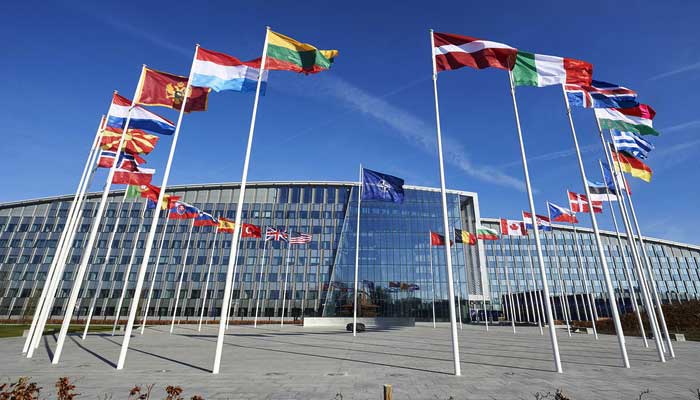
- NATO report acknowledges Pakistan's role in Afghanistan's peace process.
- Says India is against an interim government in war-torn country.
- Adds Russia – and probably China – also support replacing Ashraf Ghani with a more inclusive interim government in which the Taliban play a role.
LONDON: A report of the NATO Defence College in Rome has said that Pakistan doesn’t want the Taliban to take over in Afghanistan, pushing the Taliban to make concessions for a political deal but outside players like India are against an interim government.
The 104-page report is part of the NATO Defence College’s NDC Research Papers Series that sheds light on various issues related to Afghanistan following the US announcement to withdraw troops from the war-torn country.
Chapters on Pakistan and India have been written, respectively by Siegfried O. Wolf and Rahul Roy-Chaudhury, and defence experts from UK’s defence think-tanks IISS and RUSI have contributed.
The paper says that regional powers agree that the conflict must be resolved through a political process; most advocate some form of power-sharing with the Taliban but do not want a full Taliban takeover.
The report says that Pakistan accepts that the Taliban would have a significant role, but in coalition with other political forces; Russia – and probably China – also support replacing Ashraf Ghani with a more inclusive interim government in which the Taliban play a role.
These views are balanced by non-Taliban power brokers like Iran that may be willing to accept a power-sharing arrangement if its interests are protected but India remains opposed to an interim government, fearing it will lead to a Taliban takeover and embed Pakistan’s influence but at the same time they are not ready to back the Ghani administration with military support.
Given the Indian government’s refusal to talk publicly to the Taliban, according to the report, the country also remains largely marginalized in the international talks surrounding the peace process.
Two decades on from the events of 9/11 and a prolonged war, Pakistan stands out as the most influential regional actor, by virtue of its cultural, historical and economic ties with Afghanistan, and its long association with the Taliban, according to the report.
The report says: “Iran is a powerful regional player with extensive interests in the country, and the role of Afghanistan’s northern neighbours, Turkmenistan, Uzbekistan and Tajikistan, is often underestimated. China has a short border with Afghanistan, but operates more as a great power in the region and as a close ally of Pakistan. Russia still views Afghanistan as bordering its sphere of influence in Central Asia and as a potential source of insecurity. India also plays an important role, primarily driven by rivalry with Pakistan. The Gulf States no longer have the close ties with the Taliban that they once enjoyed, but still have important interests in Afghanistan.”
It says that a recent UK parliamentary report called for a “binding international commitment by all of Afghanistan’s neighbours to non-intervention” but such calls are unrealistic as Iran and Pakistan will become more – not less – enmeshed in Afghanistan’s politics and economy after a US/NATO withdrawal.
The report said that there is broad acknowledgement that only a political agreement can resolve the conflict, and most regional powers – with the notable exception of India – believe that any peace deal will only be viable if it involves a share of power for the Taliban. On the other hand, no regional power – including Pakistan – wants a return of the Taliban to a complete monopoly of power.
The report noted: “Pakistan has been a key driver and supporter of the US-Taliban agreement and the Doha talks, viewing them as the most likely route to achieve a political settlement that reflects its long-term geopolitical goals. Pakistan is clear on what it wants to avoid: a nationalist, pro-Western, and pro-Indian government that would pose a strategic challenge and be an irritant in bilateral relations, for example over the disputed Afghan-Pakistan frontier.”
“Pakistan also doesn’t want to see a full Taliban takeover that could spark off a deeper civil war and in 2020-21 Pakistan has been reaching out to non-Pashtun forces. It has also attempted to improve ties with Kabul.” It says that Taliban have developed relations with other powers in the region and even if it wanted to, Pakistan may not be able to persuade the movement to compromise on key issues – such as ties to Al-Qaeda or a reduction in violence – or on the shape of a potential interim administration.
On India, Rahul Roy-Chaudhury writes that India has been a major “development” partner of Afghanistan but the number of India’s ongoing projects have also been currently reduced due to the deteriorating security environment in Afghanistan. The report says that India has held talks with the Taliban in recent years at several levels but it remains marginalised in international diplomacy on the peace process with the Taliban.
Originally published in The News




